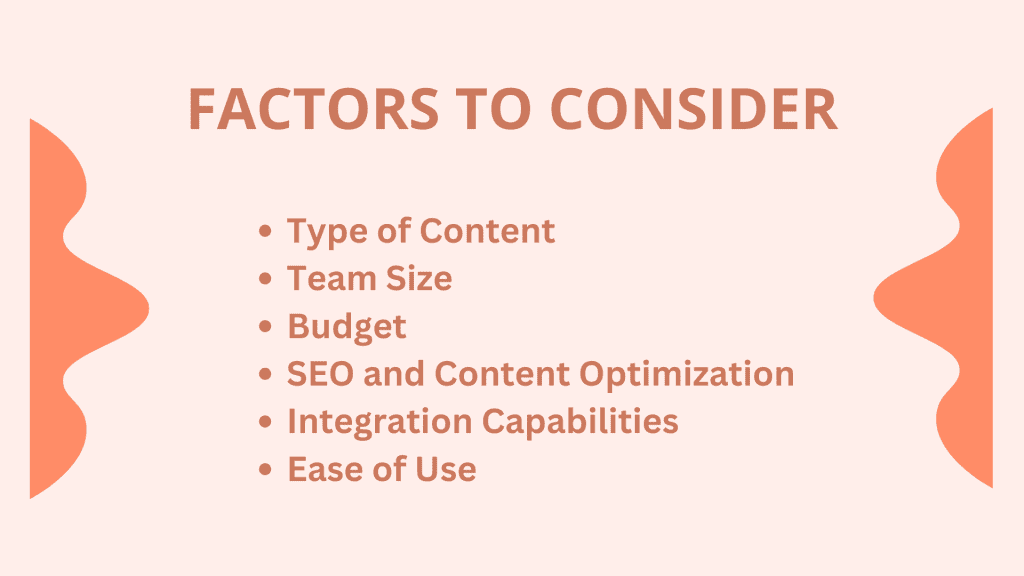Content writing tools and software are pivotal in the realm of digital marketing and communication. They significantly enhance the efficiency of content creation, management, and optimization. With the ever-evolving SEO landscape, leveraging such tools and software is not just a choice but a necessity for content creators, bloggers, and digital marketers alike.
Content writing tools and software empower creators to produce, manage, and refine content that resonates with their audience. From grammar checking and plagiarism detection to SEO optimization and content scheduling, these tools are designed to streamline the entire content creation process. They support writers in delivering high-quality content that aligns with SEO guidelines and digital marketing strategies. Not only do they facilitate keyword optimization and content curation, but they also aid in maintaining a consistent content strategy and schedule.
The efficiency brought by content writing tools and software is unmatched. AI writing assistants and text editing software allow for quicker drafting and editing, ensuring content is clear, compelling, and free of errors. Content management tools and content planning software help organize and schedule posts, which is crucial for maintaining a steady and engaging online presence. Moreover, content analysis tools provide valuable insights into the performance of the content, guiding creators on how to refine their strategy for better engagement and reach.
Incorporating SEO entities like keyword optimization, content optimization, and adhering to SEO content writing tips are fundamental in ensuring content ranks well and reaches the intended audience. Content optimization tools and SEO writing assistants are invaluable for integrating keywords naturally and improving the overall readability and SEO value of the content. They help identify the best content creation tools, including blogging tools and article writing software, to maximize content’s effectiveness and search engine rankings.
Top content writing tools include Grammarly for proofreading, Hemingway Editor for clarity, Google Docs for collaboration, and CoSchedule Headline Analyzer for catchy titles. Use Trello or Asana for project management and Canva for visuals.
Content Writing Tools and Software
Content writing tools and software are integral to digital marketing and communication, defining the efficiency and effectiveness of content. These tools encompass a wide range of applications and platforms designed to aid in content creation, management, and optimization. They are indispensable for writers, marketers, and businesses aiming to engage audiences, drive traffic, and achieve SEO success.
How Content Writing Tools and Software Elevate Productivity and Quality
Content writing tools and software streamline the entire writing process, from ideation to publication. They offer functionalities for grammar checking, plagiarism detection, and text editing, ensuring content is not only error-free but also original and of high quality. AI writing assistants and article writing software enable rapid content creation, allowing writers to produce more content in less time. This increased productivity does not sacrifice quality; instead, it enhances it by providing suggestions for improvement and ensuring adherence to SEO guidelines.
Content management tools and content planner software help organize and schedule content effectively. By using these tools, writers and marketers can maintain a consistent content strategy and ensure timely publication. Content curation and content scheduling tools further assist in planning and distributing content across various platforms, ensuring a steady and engaging online presence.
Optimizing Content for SEO and Engagement
Keyword optimization is at the heart of SEO, and content writing tools are crucial for integrating relevant keywords seamlessly into content. SEO content tools and content optimization tools suggest the most effective keywords and phrases, aiding in improving the content’s visibility and search engine ranking. These tools also provide insights into content performance, allowing for data-driven decisions to refine content strategy and reach the intended audience more effectively.
Content analysis tools offer a deeper understanding of how content resonates with the audience, providing metrics on engagement, reach, and conversion. This data is invaluable for continuously improving content and tailoring it to meet the needs and interests of the audience.
Essential Features of Effective Content Writing Tools
Selecting the right content writing tools and software is crucial for enhancing productivity, ensuring quality, and streamlining the content creation process. Here are the essential features to consider:
Ease of Use: Content writing tools should be user-friendly, with an intuitive interface that doesn’t require a steep learning curve. This allows writers to focus more on crafting quality content rather than navigating complex software. Tools that are easy to use improve efficiency and reduce the time taken from conceptualization to publication.
Integration Capabilities: The best content writing tools and software offer robust integration with other tools and platforms. Whether it’s SEO tools, content management systems, or social media platforms, integration helps maintain a smooth workflow and ensures all parts of the content strategy are interconnected and coherent.
Range of Functionalities: From keyword optimization to grammar checking and plagiarism detection, effective content writing tools provide a comprehensive range of functionalities. They support various aspects of writing, including research, drafting, editing, and optimization, making them indispensable for content creators.
AI Writing Assistance: AI-powered writing assistants are becoming increasingly popular. They can suggest content ideas, provide writing prompts, or even generate entire articles based on certain inputs. While they are not a substitute for human creativity, they can significantly aid the writing process by offering suggestions and speeding up the production of draft content.
Content Planning and Scheduling: Tools that assist with content planning and scheduling are essential for maintaining a consistent content strategy. They help in organizing ideas, planning publication schedules, and ensuring that content is released regularly and timely.
SEO Optimization Features: Content writing tools equipped with SEO features are invaluable. They can analyze content for keyword density, suggest related keywords, and even offer readability improvements. Such tools ensure that content not only appeals to readers but also performs well in search engine rankings.
Content Analysis and Reports: Post-publication, it’s important to analyze the performance of content. Tools that provide analytics and reports help understand audience engagement, content reach, and overall effectiveness. This data is crucial for refining content strategy and making informed decisions about future content.
Customization and Scalability: The ability to customize the tool according to specific needs and scale its features as the business grows is important. Customization ensures that the tool fits perfectly within the existing workflow, while scalability ensures that it remains useful as the volume of content and complexity of projects increase.
Top Content Writing Tools and Software
In the digital age, content writing tools and software have become indispensable for anyone involved in content creation. Whether you are a blogger, digital marketer, or freelance writer, these tools can significantly enhance the quality and effectiveness of your content. Below is a detailed list of some of the top content writing tools and software, categorized for ease of reference.
Writing Enhancement Tools
- Grammarly: A widely used grammar-checking software, Grammarly also offers suggestions for style and tone improvements. It’s excellent for ensuring error-free, clear, and engaging content.
- Hemingway Editor: This tool helps in making your writing bold and clear. It highlights complex sentences and common errors, ideal for crafting content with simplicity and power.
SEO Optimization Tools
- SEMrush Writing Assistant: An SEO writing assistant that provides real-time SEO recommendations, helping you optimize content for better search engine rankings.
- Yoast SEO: Primarily a WordPress plugin, Yoast SEO guides you in optimizing your content for specific keywords and readability, making it a favourite among bloggers.
Research Aids
- Evernote: This tool is excellent for content planning and organizing research. It allows you to save articles, notes, and images, syncing across all devices.
- BuzzSumo: BuzzSumo helps in content research by identifying trending topics and analyzing what content performs best for any topic or competitor.
Grammar and Style Checkers
- ProWritingAid: This comprehensive tool offers in-depth grammar, style, and readability checking, making it a great choice for both casual and professional writers.
- WhiteSmoke: A powerful grammar and writing software that checks for grammatical errors, improves sentence structure, and even detects plagiarism.
AI Writing and Text Editing Tools
- Jasper AI: Jasper uses artificial intelligence to generate high-quality content quickly. It’s particularly useful for initial drafts or overcoming writer’s block.
- Scrivener: Ideal for long-form content creators, Scrivener offers powerful editing and formatting tools to help structure and write complex documents.
Content Management and Scheduling Tools
- Trello: A versatile tool for content scheduling and project management, Trello’s visual boards provide a clear overview of content pipelines and schedules.
- Asana: Asana is excellent for managing content calendars, deadlines, and collaborations within teams, streamlining the content creation process.
Plagiarism Detection Tools
- Copyscape: This tool checks for instances of content plagiarism, ensuring that your content remains original and unique.
- Turnitin: Widely used in academic circles, Turnitin is also useful for content creators in ensuring the authenticity of their written work.
Content Analysis and Strategy Tools
- Google Analytics: Essential for content analysis, it provides insights into how your content is performing in terms of traffic, engagement, and conversions.
- ContentStudio: A complete content marketing and social media management tool that helps you discover, plan, publish, and analyze your content.
How to Choose the Right Tools for Your Needs
Choosing the right content writing tools and software is pivotal in crafting high-quality, engaging, and SEO-optimized content. Here are the factors and tips to consider to ensure that the tools you select align perfectly with your needs:

Factors to Consider
- Type of Content: Different tools are better suited for different types of content. Whether you’re focusing on blogging, article writing, copywriting, or storytelling, ensure that the tool specializes in that area or offers the relevant features.
- Team Size: Consider the collaboration features of content writing tools and software. Larger teams require tools that allow for easy sharing, feedback, and version control.
- Budget: There’s a wide range of free and premium tools available. Determine your budget for content creation and look for tools that offer the best value within your financial constraints.
- SEO and Content Optimization: Since SEO is integral to content success, select tools that offer keyword optimization, content analysis, and SEO guidelines to ensure your content ranks well and reaches the intended audience.
- Integration Capabilities: Your content writing tools should integrate seamlessly with other tools and platforms you use, such as content management systems, SEO tools, and social media platforms.
- Ease of Use: A tool is only as good as its usability. Select tools that have an intuitive interface and don’t require a steep learning curve.
Tips for Testing and Comparing Different Options
- Free Trials and Demos: Most tools offer free trials or demos. Use them to get a hands-on feel for how the tool works and whether it fits your workflow.
- Check Reviews and Ratings: Look for reviews from other users, especially those with similar needs and objectives. User reviews can provide valuable insights into the pros and cons of each tool.
- Assess Customer Support: Good customer support can be crucial, especially when you encounter issues or have questions. Consider the responsiveness and helpfulness of the support team.
- Compare Features and Limitations: List the features that are most important to you and compare how different tools address these needs. Also, be aware of any limitations or restrictions.
- Evaluate Scalability: Consider not only your current needs but also how your needs may evolve. The tool should be scalable and adaptable to future growth and changes in strategy.
- Check for Updates and Improvements: Ensure the tool is regularly updated and improved. Frequent updates are a good sign that the tool is keeping up with the latest trends and technologies.
- Consider the Community and Resources: Some tools have a strong community of users and a wealth of resources like forums, tutorials, and guides, which can be incredibly helpful.
Conclusion
Throughout this exploration of content writing tools and software, we’ve discussed the integral role these resources play in the modern content creation landscape. From enhancing the quality and efficiency of writing to ensuring content is optimized for SEO and engagement, content writing tools and software are indispensable for writers, marketers, and businesses alike.
- Importance of Content Writing Tools: We emphasized that content writing tools and software are critical in today’s digital marketing strategies. They aid in various aspects of content creation, including grammar checking, SEO optimization, plagiarism detection, and more.
- Types of Tools Available: We explored various categories, such as writing enhancement tools, SEO optimization tools, research aids, grammar and style checkers, AI writing tools, and content management systems. Each category offers unique benefits and is suited for different aspects of content creation.
- Selection Criteria: Factors such as type of content, team size, budget, and specific content goals are important when choosing the right tools. We provided tips for testing and comparing different options, ensuring that you find the best fit for your needs.
- Future of Content Writing Tools: The landscape of content writing tools and software is continually evolving. With advancements in AI and machine learning, the capabilities of these tools are expanding rapidly, offering more sophisticated and user-friendly solutions for content creators.
As we look to the future, the role of content writing tools and software is set to become even more prominent. The continued evolution of AI and machine learning will likely introduce new capabilities and enhancements, making these tools even more essential in the content creation process. The integration of these technologies will further streamline content production, enable more personalized and targeted content, and improve the overall effectiveness of digital marketing strategies.
To stay competitive and produce the highest quality content, it’s crucial for content creators, marketers, and businesses to explore and adopt these tools. By leveraging the right content writing tools and software, you can enhance your productivity, improve the quality and impact of your content, and achieve better results in your digital marketing efforts.
FAQs
What are the best tools for content writing?
The best tools for content writing include Grammarly for grammar and style checking, SEMrush and Yoast for SEO optimization, Hemingway Editor for readability improvements, Scrivener for long-form content organization, and Google Docs for collaborative writing.
How can content writing software improve efficiency?
Content writing software improves efficiency by automating routine tasks, providing real-time suggestions for SEO, grammar, and style improvements, offering templates for various content types, and organizing content effectively with scheduling and management features.
What are the features of top content writing tools?
Top content writing tools feature grammar and style checks, plagiarism detection, SEO optimization recommendations, readability enhancements, content management and scheduling, and integrations with other digital tools and platforms.
Is there any free content writing software available?
Yes, there are free content writing software options available, such as Google Docs for collaborative writing, Grammarly’s free version for basic grammar and spell checks, and the Hemingway Editor for improving readability.
How does AI content writing software work?
AI content writing software works by using machine learning algorithms and natural language processing to generate text, suggest improvements, and offer content ideas based on input parameters and analyzed data.
What are the benefits of using content writing tools?
Benefits of using content writing tools include improved writing quality, higher productivity, enhanced SEO performance, consistent content strategy implementation, and a streamlined content creation process.
How can content writing tools help in SEO?
Content writing tools help in SEO by suggesting relevant keywords, analyzing content for SEO best practices, offering readability and structure improvements, and tracking content performance to guide future optimizations.
What are the differences between content writing and content marketing tools?
Content writing tools focus on the creation and editing of text, offering features like grammar checks and style suggestions, while content marketing tools encompass broader strategies, including distribution, analytics, and audience engagement across various platforms.
How to choose the right content writing software?
Choose the right content writing software by considering factors like your specific needs, the type of content you produce, budget, team size, desired features, and the software’s compatibility with your existing workflow and tools.
Can content writing tools help with grammar and plagiarism?
Yes, content writing tools can help with grammar and plagiarism. Tools like Grammarly and ProWritingAid offer advanced grammar checking and style suggestions, while Copyscape and Turnitin provide plagiarism detection services.






